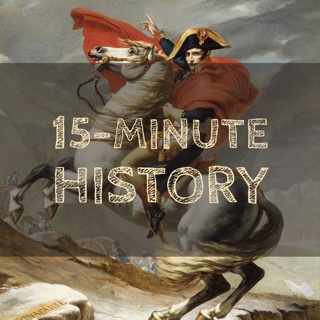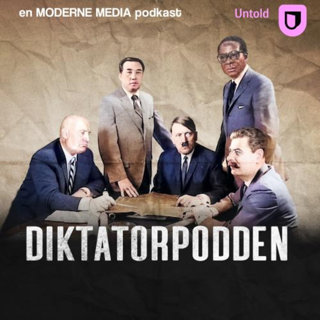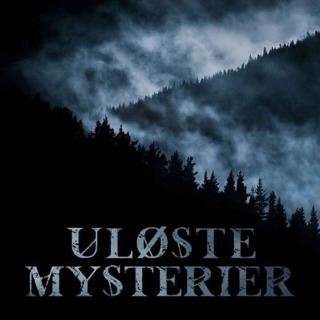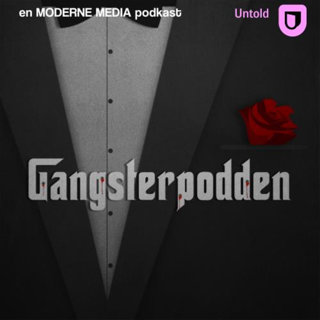
Pop Quiz | Rent Controls
Welcome to the Pop Quiz! During the summer break, the team still wanted to bring you, our awesome audience, some new content. Every Thursday, one of the hosts will ask the other a question about history they must answer. Have an idea for a topic? Send it to us at 15minutehistory@gmail.com or submit it to our website at https://www.15minutehistorypodcast.org.
22 Aug 20243min

Fyodor Dostoyevsky | The Darker the Night, the Brighter the Light (Republish)
During the summer break, the 15-Minute History podcast team are republishing some of their favorite episodes. This episode and discussion on Adam Smith originally aired on November 15, 2021. ___ He looked up at the white sky. The flakes did come into view until they came through the holes in the roof. A breeze blew through the building. Men around him huddled close together. He didn’t smell the stink anymore. It was all the same smell. Among the flakes now contrasting with the dark of the roof, he centered on one that moved slowly down to him. It went to and fro, back and forth, until it seemed to hover, suspended and clean, uncorrupted by the world and the filth and the pain that it was falling into. Then it fell. And when it touched his arm he watched it absorb the dirt and blood and suddenly it looked like rot. He turned back to the sky and repented. His voice was the only one he could hear. Join us as we teach you about Fyodor Dostoyevsky, his influences, his style, and his impact on our world today.
19 Aug 202438min

Pop Quiz | Executive Orders
Welcome to the Pop Quiz! During the summer break, the team still wanted to bring you, our awesome audience, some new content. Every Thursday, one of the hosts will ask the other a question about history they must answer. Have an idea for a topic? Send it to us at 15minutehistory@gmail.com or submit it to our website at https://www.15minutehistorypodcast.org.
15 Aug 20245min

Eisenhower’s Farewell Address | A Warning for the Future (Republish)
During the summer break, the 15-Minute History podcast team are republishing some of their favorite episodes. This episode and discussion on Eisenhower's Farewell Address originally aired on April 24, 2023. ___ The president sat at his desk in the Oval Office as technicians scurried about setting up lights and cameras. He looked down at the speech, his last to the nation he had served for almost a half-century, and his thoughts no doubt turned to the tumultuous events of his life. Two world wars, nations devastated and then reborn, and the constant menace of a new enemy armed with terrible weapons. But perhaps he also thought of the advancements he had witnessed: economic revival and a new standard of living, an unpopular war imperfectly ended, and a world still thriving despite the threat of atomic devastation. His long life was nearing its end, and America’s oldest president would soon hand power to the youngest ever elected. Change was upon the country, and its people deserved one last message from a man who had led it through many dangers. He took a breath and began to speak. “Good evening, my fellow Americans.” Join us as we teach you about Eisenhower's farewell address, the warnings he included, and the impact of what he got right.
12 Aug 20241h

Pop Quiz | Supreme Court Reform
Welcome to the Pop Quiz! During the summer break, the team still wanted to bring you, our awesome audience, some new content. Every Thursday, one of the hosts will ask the other a question about history they must answer. Have an idea for a topic? Send it to us at 15minutehistory@gmail.com or submit it to our website at https://www.15minutehistorypodcast.org.
8 Aug 20244min

J.R.R. Tolkien | Optimism (Republish)
During the summer break, the 15-Minute History podcast team are republishing some of their favorite episodes. This episode and discussion on J.R.R. Tolkien originally aired on October 10, 2022. ___ Familiar to millions as the author of The Hobbit and The Lord of the Rings, John Ronald Reuel Tolkien believed that myths used stories of heroes to inspire generations of readers. He began his writing career with a children’s book, and when his publisher asked for a sequel, Tolkien had to give it some thought. For much of his life, he had lamented the fact that much of English mythology had been destroyed by invading armies or imported from abroad. (For example, the most famous English myth, that of King Arthur, was a blend of Scottish and French stories.) On putting pen to paper for the first time on his magnum opus, The Lord of the Rings, Tolkien began to craft an alternate mythology for his homeland that would tell heroic tales that, he believed, were lacking in modern Britain. Join us as we teach you about heroism through the eyes of J.R.R. Tolkien, how he incorporated heroism into stories, and how history influenced his view of heroes in fiction and real life.
5 Aug 202457min

Special Pop Quiz | So, what's going on? (A Discussion on Historical Current Events)
Welcome to a special Pop Quiz! In this longer version of our traditional pop quiz, Joe and Jon discuss the current election and attempted assassination from a historical perspective. As always, we invite you to send us your feedback and questions on this discussion. Every Thursday, one of the hosts will ask the other a question about history they must answer. Have an idea for a topic? Send it to us at 15minutehistory@gmail.com or submit it to our website at https://www.15minutehistorypodcast.org.
1 Aug 202421min

Adam Smith | Self-Interest, Division of Labor, and the Invisible Hand (Republish)
During the summer break, the 15-Minute History podcast team are republishing some of their favorite episodes. This episode and discussion on Adam Smith originally aired on April 18, 2022. ___ This season we have been covering individuals who have had a direct effect on history, in a positive or negative way. Adam Smith is one of those. He is called the “father of modern economics” and “the creator of capitalism”. Rather than walk you through a summary of his life, we will attempt to summarize the possible influences that formed three major concepts which exist in his later and final work, the Wealth of Nations, namely the appropriation of Self-Interest, Division of Labor, and the “The Invisible Hand”, thereby showing the linear deduction of each, and how that logic reflects in Adam Smith’s moral philosophy. With the presentation of these three ideas, it's our hope that you will make your own deductions regarding what kind of man he was and whether his effect on history was a positive one.
29 Jul 202452min




















